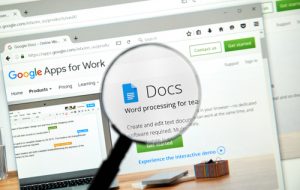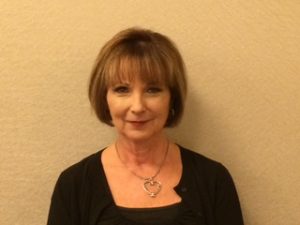Turning PD into Action
 ‘Tis the season . . . for professional learning! Conferences, early releases, and late-start days; inspiring speakers, intense conversations–and then we return back to our students and apply the lessons. It’s one last big push to propel us to the end of the school year.
‘Tis the season . . . for professional learning! Conferences, early releases, and late-start days; inspiring speakers, intense conversations–and then we return back to our students and apply the lessons. It’s one last big push to propel us to the end of the school year.
However, the challenge becomes how to thoughtfully take our new learning and strategically act on it, in order to change practices and meaningfully impact our students. My team of teachers and I recently had the opportunity to attend a national literacy conference. We wanted our investment in time and travel to pay off, so we committed to collaborate in a variety of ways.
How We Solidified Our Learning
- Talk, talk, talk! We had conversations when the presenters encouraged us to “turn and talk.” We talked in between sessions and we talked our way through dinner and adult beverages. All that talk helped us to deepen our understandings and reconcile new ideas with current practices.
- Write. A lot. We took notes in a variety of ways. Some of us took pictures of slides and inserted them into notes and apps on our iPads. Others used composition notebooks, highlighters, and sticky notes. Many took notes and then made annotations of our thinking in the margins. Some e-mailed, texted, or connected using social media (Twitter, Facebook).
- Take quiet time. It seemed overwhelming to consider the richness of all these new possibilities, and time was needed to prioritize our thinking. Quiet time was the answer to the questions, “What’s next?” and “What do we need to rethink in regards to current practices?”
Steps that Led to Action
 Consolidating big ideas and notes into a Google Doc. Learners’ block! We were paralyzed and couldn’t decide what was important to tackle first. We agreed to wait a week and then to revisit our notes. Additionally, mid-year reassessments were in full swing. And so with data in hand, it was much easier to focus and prioritize what to put into action. This also meant we would have to let some things go for now.
Consolidating big ideas and notes into a Google Doc. Learners’ block! We were paralyzed and couldn’t decide what was important to tackle first. We agreed to wait a week and then to revisit our notes. Additionally, mid-year reassessments were in full swing. And so with data in hand, it was much easier to focus and prioritize what to put into action. This also meant we would have to let some things go for now.- Commit to change. We all committed to putting new learning into action. There is power in working with a team, because once we said it out loud, it was real! We were accountable to each other.
Actions We Took
- One teacher committed to making a video to share with our classroom-teacher teams.
- Others agreed to add new procedures to lessons. They would report back on how students’ processing changed, by sharing running records and students’ writing with our team.
- We set up a new Google Docs folder where we would post pictures of student samples and lesson plans.
Other Takeaways
A need emerged. It was partly due to our collaboration. It also resulted from the formative assessment process with our students, as well as the speakers who inspired and showed us new ways to connect with our students’ next learning steps. The need was to be more intentional with our teaching. Intentional teaching equals “accelerative” learning.
- We would study how to intentionally design word-work lessons that assist students to problem solve words effectively and efficiently while reading and writing.
- We would continue to be conscious of our teaching interactions and language, so that we’d be teaching for tomorrow, not just today.
- Our collaborative work would continue, and it would also be imperative to include our classroom teacher-teams by sharing concrete examples of how lessons look and sound. Together we would assist the students’ transfer of new learning to independence.
Resources
Here are a few of the resources and speakers that pushed our thinking, as well as resources we revisited as we renewed those valuable “friendships” with our long-time mentors.
Who’s Doing the Work?, by Burkins & Yaris
“Finding Versus Fixing,” by Anderson & Kaye
Dr. Laura Tortorelli, Michigan State University
Interventions that Work, by Dorn & Soffos
Apprenticeship in Literacy 2nd Edition, by Dorn & Jones
Literacy Lessons, by Clay
 Lynn Mangold Newmyer has been an educator for 42 years. She is a Reading Recovery Teacher Leader and an Elementary Literacy Coach in the Walled Lake Consolidated School district. Lynn has presented at state, national, and international conferences and has taught graduate classes at Oakland University. She currently teaches her students at Loon Lake Elementary. Lynn emphatically believes that you can never own too many picture books. You can follow her on Twitter at @LynnRdgtch.
Lynn Mangold Newmyer has been an educator for 42 years. She is a Reading Recovery Teacher Leader and an Elementary Literacy Coach in the Walled Lake Consolidated School district. Lynn has presented at state, national, and international conferences and has taught graduate classes at Oakland University. She currently teaches her students at Loon Lake Elementary. Lynn emphatically believes that you can never own too many picture books. You can follow her on Twitter at @LynnRdgtch.
